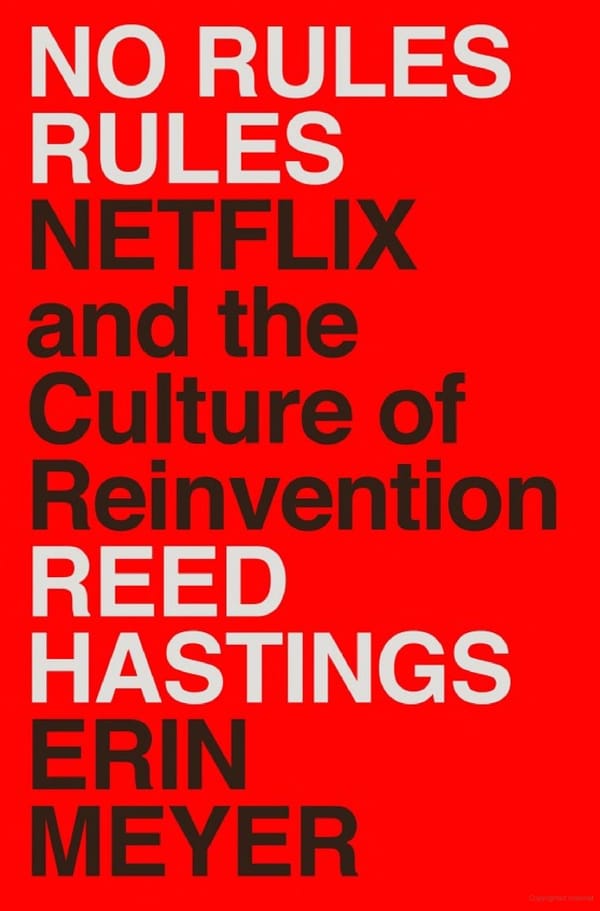Coaching: Trillion Dollar Coach
Coaching is one of the most important parts of being a great manager. Invest your time in. Trillion Dollar Coach is a fantastic book outlining how one of the best ever did it.

To be a great manager, you have to be a great coach. After all, the higher you climb, the more your success depends on making other people successful. By definition, that’s what coaches do.
This is a book about Bill Campbell, also known as “coach” since the first part of his career was that of a football coach. The authors claimed they didn’t set out to write a hagiography but they ended up doing something very similar. And that’s fine with me. Trillion Dollar Coach is one of my favorite management books, in part for the life of Bill Campbell and in part for the lessons learned. This review comes after my third read-through of it.
Coach first coached college football, then later went into business. He quickly rose through the ranks at Kodak and then came out to Silicon Valley in his 40s–much later than many of his peers. He rose to be a VP at Apple in the early days and CEO of Intuit. He sat on many boards and played a crucial role in coaching Google, Facebook, Apple, and many other executive teams. He also coached middle school football with the same level of focus and dedication.
What's the difference between a coach and mentor? Coaches “get their hands dirty” and play a very active role in helping someone reach their potential. Coaching is a core part of being a great manager. Bill Campbell is inspirational as a coach. Apparently he had 1000 people consider him to be their best friend.
Campbell often didn’t have an opinion on strategy, but looked for tension, conflict and dissent and aimed to smooth things over. He also wanted to make sure that decisions were being made. His role was to make sure the team was ready to do what it needed to–and was able to execute:
Bill rarely weighed in on strategic issues, and if he did, it was usually to make sure that there was a strong operating plan to accompany the strategy. What were the current crises? How quickly were we going to manage our way out of them? How was hiring going? How were we developing our teams? How were our staff meetings going? Were we getting input from everyone? What was being said, what wasn’t being said?
One of the lessons in the book is the paramount importance of having the right people in the right roles. Once you have that, and they work well together, the rest is a lot easier to resolve. As noted in An Elegant Puzzle: “With the right people, any process works, and with the wrong people, no process works.”
Campbell believed in love, in the platonic sense. That you could bring your whole self to work and genuinely care for those with whom you work. Now there is a lot more literature around this, but at the time he was practicing it, he was ahead of the industry. Did he just happen upon the best practices and open sourced them? In either case, his legacy is really incredible.
One interesting anecdote came in Google’s earlier days, when they had their experiment with no managers in engineering. He quickly realized that was a disaster and found out that people do want managers–they want people they can learn from and who can break ties. While coaching Sundar Pichai, he would often begin with “what ties have you broken lately?”
Campbell’s 2 most important principles for management were:
- Get the 1:1s right
- Get the staff meeting right
Much of the rest of the book surfaces situational or tactical advice and how Coach would approach it. By the end of the book, you get a real sense of the person (saint? Except he swears a ton) that Coach was. I come away a bit envious of those who got to be coached by him, wishing that I had the opportunity.
In my experience, coaching is not one-size-fits-all. You will need to invest time in each person, and tailor your coaching to their growth objectives. Here are the practical lessons I’ve learned about coaching people:
- You’re not there to solve their problems. You’re there to provide advice for them to solve their problems.
- Try to help figure out what’s important – prioritization so that they don’t try to do everything at once. Sometimes you can even ask, “So how can I help?”
- Real change takes time. Be patient.
- Only coach the coachable – not everyone is ready to be coached. Since the work is being done by the coached, they need to be ready for it.
If you are in the privileged position of being a manager, coaching is one of the most important things you can do. It’s the foundation of growth for your team and a serious time investment. You owe it to yourself and your team to learn how to be a great coach.
Additional resources:
- https://getlighthouse.com/blog/managers-must-become-coaches/
- Slides: https://www.slideshare.net/ericschmidt/trillion-dollar-coach-book-bill-campbell
Here are some quotes that stood out to me:
It’s not that he told us what to do—far from it. If Bill had opinions about product and strategy, he usually kept them to himself. … But he made sure the team was communicating, that tensions and disagreements were brought to the surface and discussed, so that when the big decisions were made, everyone was on board, whether they agreed or not.
Never put up with people who cross ethical lines: lying, lapses of integrity or ethics, harassing or mistreating colleagues.
The traits of coachability Bill sought were honesty and humility, the willingness to persevere and work hard, and a constant openness to learning.
“When I became CEO of Google,” Sundar Pichai says, “Bill advised me that at that level, more than ever before, you need to bet on people. Choose your team. Think much harder about that.”
People would simmer, and Bill would spot it. This requires keen observation. Not just listening to the words, but noticing the body language and the side conversations. So many of the people we talked to commented on Bill’s ability to sense when people were frustrated. This is a natural skill, but one that can be developed. You have to listen and watch.



